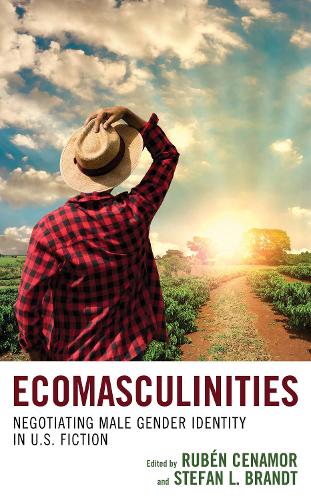
Ecomasculinities: Negotiating Male Gender Identity in U.S. Fiction
(Hardback)
Available Formats
Publishing Details
Ecomasculinities: Negotiating Male Gender Identity in U.S. Fiction
By (Author) Rubn Cenamor
Edited by Stefan Brandt
Contributions by Victoria Addis
Contributions by Alessa Calanchi
Contributions by Layla Hendow
Contributions by Evangeline Heiliger
Contributions by Bill Phillips
Contributions by Teresa Requena Pelegr
Contributions by Virginia Luzn-Aguado
Contributions by Martin Hultman
Bloomsbury Publishing PLC
Lexington Books
25th January 2019
United States
Classifications
Professional and Scholarly
Non Fiction
Nature and the natural world: general interest
Gender studies: men and boys
813.009353
Physical Properties
Hardback
206
Width 160mm, Height 231mm, Spine 20mm
449g
Description
While there exist numerous studies on ecocriticism and ecofeminism, much less has been written about ecomasculinities. This volume contributes to filling this gap by examining models of fictional ecomasculinity in and through contemporary U.S. literature and cinema. Our study examines ecomasculinities as practices of masculinity which are deeply conservationist and can embrace non-masculine traits. In this line of thought, a main goal of the volume is to interrogate the potential of ecomasculinities to elicit in men a desire to become engage in other practices of masculinity that are counter-hegemonic and have as main goal to achieve equality on different strata of society. Bridging the gap between the Social Sciences and the Humanities, the book interrogates intersections between ecomasculinities and masculinities beyond capitalism, ecomasculinities and aging, and ecomasculinities and queerness, among others.
Reviews
If American masculinity has been historically grounded in "taming" nature, and environmentalism synonymous with "feminized regulation," then how can men articulate a relationship with nature We hardly need an eco-masculinisthero"Eco-Man to the Rescue!"and these careful readings of recent American fiction show men's fitful efforts to define a relationship as cohabitors on an increasingly fragile planet. Ecomascuinities, carefully constructed, are a necessary part of our survival. -- Michael Kimmel, SUNY Distinguished Professor of Sociology and Gender Studies, Stony Brook University
To critically interrogate the historically unmarked category of ecomasculinities is to strive for better understandings of the Western imagination and its ecological malaise. This rich volume highlights the importance of the literary in the urgent endeavour of reformulating relationships between men and the more-than-human. It will inform timely debates in ecocriticism, gender studies and cultural studies. -- Richard Twine, Senior Lecturer in Social Sciences, Co-Director of Centre for Human-Animal Studies (CfHAS), Edge Hill University
Ecomasculinities addresses a significant gap in both the masculinities literature and eco-criticism. Informed by ecofeminist critiques of mens exploitation of nature and the links between dominant forms of masculinity and ecological destruction, the editors and contributors draw upon fictional representations of diverse masculinities to envisage new non-exploitative relations between men and nature. In doing so, they provide inspiration for men in the real world to transform dominant masculinities and to foster a feminist-informed ethic of care for the environment and all living beings. -- Bob Pease, Honorary Professor, School of Humanities and Social Science, Deakin University
Author Bio
Stefan Brandt is professor at the University of Graz. Rubn Cenamor is PhD candidate and research fellow at the University of Barcelona.
